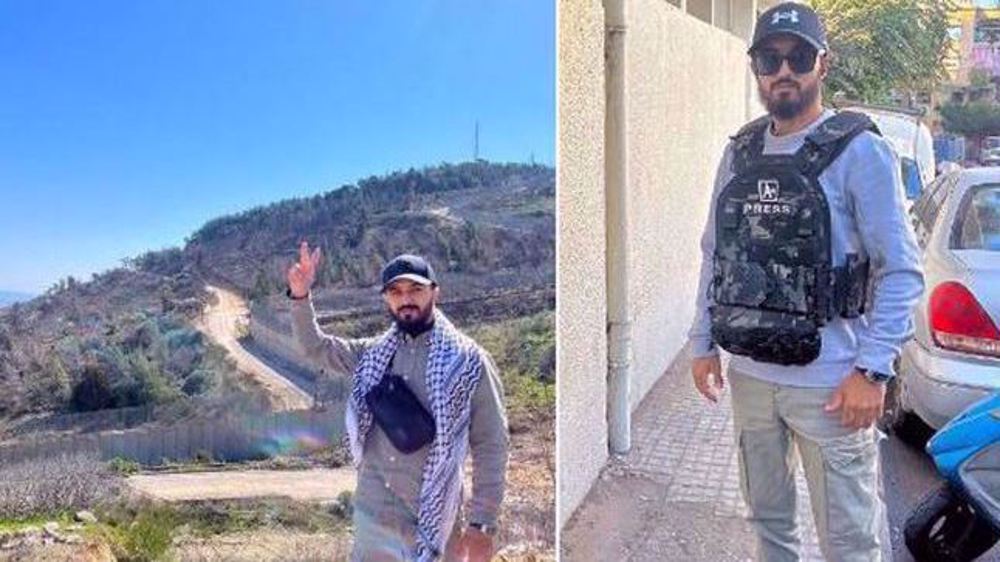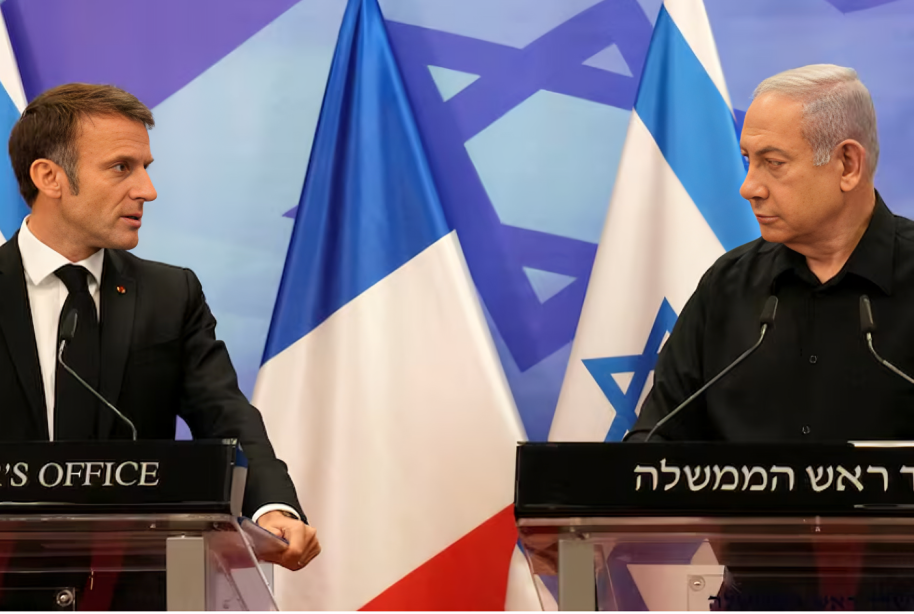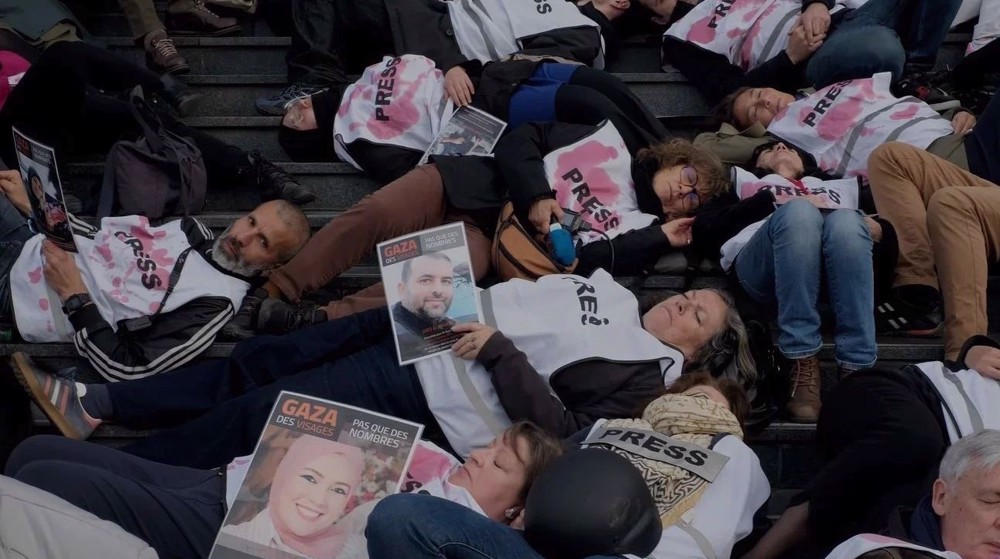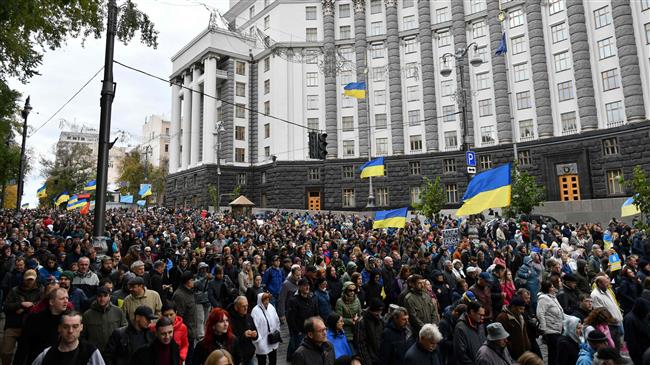Leaders of Ukraine, Russia, France, Germany to hold summit on Donbass conflict
The presidents of Russia and Ukraine are set to hold their first face-to-face talks in Paris along with leaders of France and Germany as part of renewed four-way efforts to end a deadly conflict in eastern Ukraine.
The meeting, slated to be held later on Monday, brings together Russian and Ukrainian Presidents Vladimir Putin and Volodymyr Zelensky, with German Chancellor Angela Merkel and President Emmanuel Macron of France mediating the peace endeavor — the first of its kind in three years.
The crisis first broke out in Ukraine’s mainly Russian-speaking region in 2014, when a wave of protests overthrew a democratically-elected pro-Russia government and replaced it with a pro-West administration.
This prompted an armed conflict in Ukraine’s eastern regions, where people have refused to endorse the new administration. The confrontations saw pro-Russia forces take control of two large eastern regions of Donetsk and Lugansk, demanding greater autonomy from Kiev.
Kiev and its Western allies accuse Moscow of fueling the crisis, an allegation Russia has rejected.
Also in 2014, people in Crimea — a peninsula on the northern coast of the Black Sea — voted in a referendum in favor of reuniting with the Russian Federation, further souring Moscow’s relations with Western states, which branded the development as Russia’s annexation of the region.
The Paris summit is aimed at facilitating the implementation of the long-stalled peace accords signed in Minsk, Belarus, in 2015 between Kiev and pro-Russia forces in the east with the mediation of Moscow, Paris and Berlin — in what is known as the Normandy Four format.
The agreements call for the withdrawal of heavy weapons, the restoration of Kiev’s control over its borders, wider local autonomy, and the holding of local elections.
The Kremlin has sent signals that it is ready to work with Zelensky, whom Putin has described as “likeable” and “sincere.”
Zelensky won Ukraine’s presidential election in April on a pledge to work for peace in the east, where the UN says over 13,000 people have lost their lives since 2014.
German Foreign Minister Heiko Maas told the Funke newspaper group ahead of the summit that “we have to do everything we can... to make progress in the Ukrainian peace process,” describing the conflict as “a festering wound in Europe.”
Maas praised Zelensky for bringing “new momentum” to the talks, adding that “to make progress with the next difficult steps, Russia needs to make a move too.”
The talks come amid calls in Europe for better ties with Russia as the main supplier of energy to the continent.
Earlier, Macron, who shocked NATO allies by declaring the military alliance 'brain dead,' made clear his belief that Europe needs a strategic partnership with Russia.

France detains Iranian journalist amid crackdown on pro-Palestinian voices

Israel revokes visas for 27 French MPs after Macron signals support for Palestinian state

French journalists stage 'die-in protest' in support of Palestinian reporters
VIDEO | Press TV's news headlines
VIDEO | US issues ‘final offer’ to Kiev for peace with Moscow
VIDEO | Pakistan warns of war over water diversion as India vows retaliation against militancy
ICC rejects Israel’s request to cancel arrest warrants for Netanyahu
VIDEO | Starvation spreads as Gaza faces deepening famine
VIDEO | Fake anti-Muslim stories go viral once more
Trump poised to sell arms worth $100 billion to Saudi Arabia: Report
'War is defeat': Pope Francis will be remembered for his moral stand on Gaza











 This makes it easy to access the Press TV website
This makes it easy to access the Press TV website